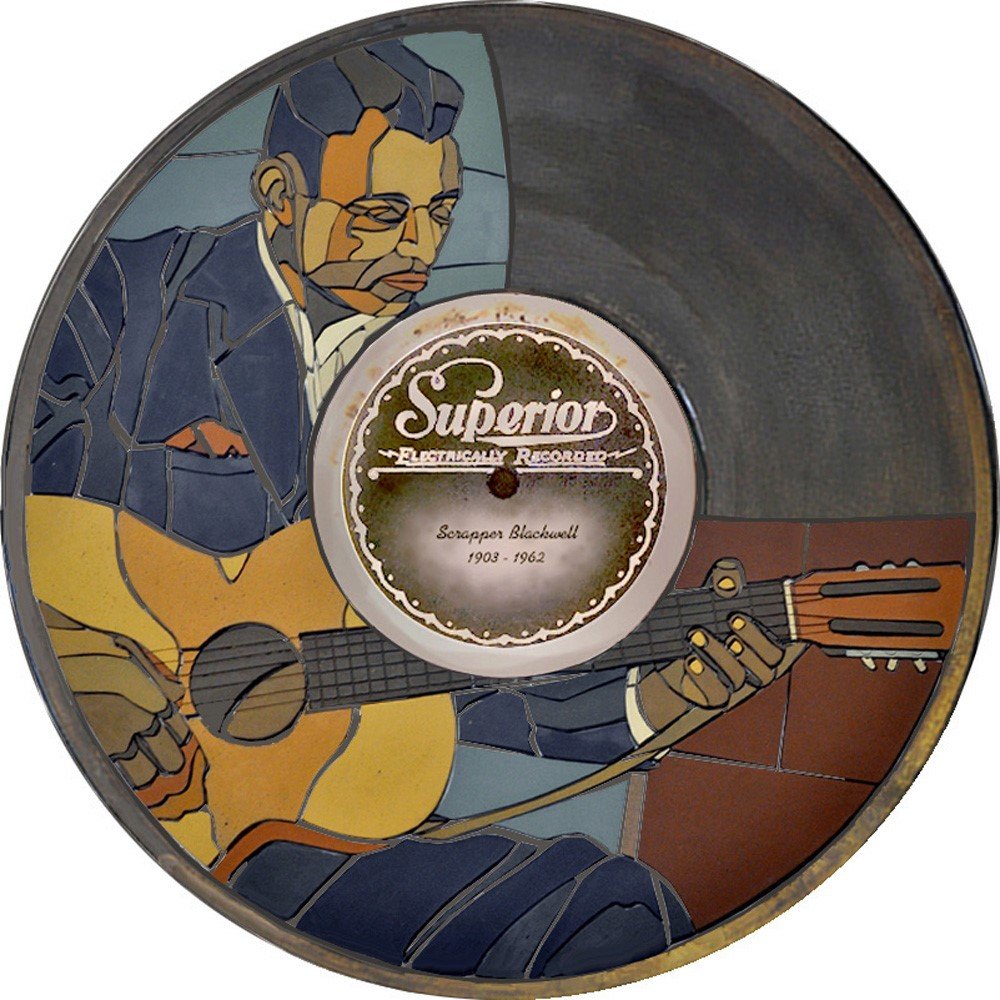Francis “Scrapper” Blackwell
Francis “Scrapper” Blackwell
(2012 INDUCTEE) LIVING MOST OF HIS LIFE IN INDIANAPOLIS, BLUES GUITARIST BLACKWELL WAS A KEY FIGURE IN THE TRANSITION OF THE BLUES FROM ITS COUNTRY ROOTS TO A MORE URBAN SOUND. HE RECORDED AT GENNETT RECORDS IN 1930 1931.
Medallion Donation: DONATED IN LOVING MEMORY OF HER FATHER, ROBERT FRANCIS MARTIN (HUSBAND OF ROSE GENNETT MARTIN) BY ALICE MARTIN KARLEBACH
Francis Hillman “Scrapper” Blackwell was an American blues guitarist and singer. Best known as half of the guitar-piano duo he formed with Leroy Carr in the late 1920s and early 1930s, he was an acoustic, single-note picker in the Chicago blues and Piedmont blues styles, with some critics noting that he veered towards jazz. Blackwell was born in Syracuse, South Carolina, on February 21, 1903 as one of sixteen children. He claimed to be part Cherokee. When he was quite young, his family moved to Indianapolis, Indiana, where he spent most of his life. He was nicknamed “Scrapper” by his grandmother because of his fiery nature. His father played the fiddle, but the young Blackwell became a guitarist, building his first instrument out of cigar boxes, wood, and wire. He also learned the piano. Although largely self-taught as a guitarist, Blackwell was later influenced by the recordings of Willie Harris and Blind Lemon Jefferson, and probably by the East Coast Piedmont style of his birthplace. He didn’t consider himself a professional musician until pianist Leroy Carr persuaded Blackwell to record with him in a June, 1928, session for Vocalion which was in Indianapolis. The result was “How Long, How Long Blues,” the biggest blues hit of that year. The success of that first recording led to continued offers for the duo to record their lean, introspective blues even during the deepest parts of the Depression when recordings of race records all but stopped. The duo’s success also led Blackwell to record on his own. In his first solo session, late in 1928, Blackwell recorded one of his own compositions, “Kokomo Blues,” a moderate hit in the Midwest. Blackwell’s best work though came in his collaboration with Carr. Carr’s subdued, introspective vocals and bass-oriented piano allowed Scrapper’s virtuoso guitar the freedom it sought. The duo was very popular in Indianapolis and nearby cities. Blackwell made several solo visits to Richmond in 1931-32 for notable sessions at the Gennett studio. His last recording session with Carr was in February, 1935 for the Bluebird label. The session ended bitterly with a dispute over payments. Two months later, Carr died. Blackwell was depressed over the death of his partner of seven years. After recording “My Old Pal Blues”, he quit recording and soon gave up music altogether, becoming a manual laborer. Twenty years later, he was rediscovered and recorded in Indianapolis on three less familiar labels, Collector, Doug Dobell’s 77 Records, and Art Rosenbaum’s Prestige/Bluesville.

